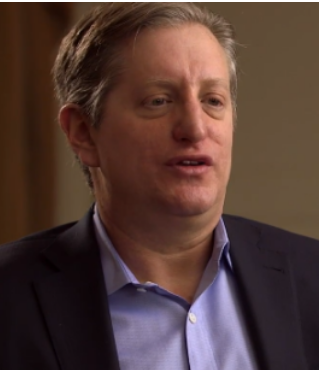Malamud Retires, Remembering Rothbard
Economics professor Bernard Malamud made the local paper today as he is retiring after teaching at UNLV for 50 years. I had Professor Malamud for a class, but darn if I can remember what the class was.
Malamad showed up in 1968 when UNLV was but a dream. “The campus was a desert; there was nothing here,” he told the R-J “There were rabbits running around and coyotes running around, and what Tom [White] described was a big-city university. That’s what we’ve become.”
The article mentions several predictions he flubbed. He had projected the Las Vegas population to top out at 750,000 or a million. The real estate boom and subsequent 2008 crash, “As far as the spurt in property values here, I thought, hey, we’re just catching up to where we ought to be catching up, to big cities like Phoenix and even Los Angeles,” he said. “The bust and the severity of the bust did surprise me.”
What surprised me is he has been teaching History of Economic Thought. He told the paper, that it’s his favorite class. “It’s covering the whole spectrum of economics,” he said. “I get to reminisce about each of the themes of the economics discipline.” I would guess he would leave out the Austrian school despite having officed down the hall from the modern dean of the Austrian school, Murray Rothbard, along with the current dean of the school, Hans Hoppe.
Until January of 1995, Murray Rothbard taught the History of Thought class. I’ve written before about the experience. I had no idea who Rothbard was and a fellow student told me to avoid Murray, calling him a kook. Professor Malamud, an avid Keynesian, likely didn’t recommend Rothbard either.
The first night of class, Murray hit the door and started talking immediately, something about dumb politicians threatening the evil oil companies that were raising gas prices. From that thought, he just continued right into his History of Economic Thought lecture. He didn’t take roll, or hand out a syllabus. Murray didn’t have time for that; he had centuries of history to cover.
So the 8 or 10 of us in the class furiously took notes trying to keep up. I didn’t know it at the time, but only half of us were taking the class for credit, the other half were just auditing the course, having taken it previously for credit. Murray changed his History of Thought lectures each semester, so students took it as often as it was offered. In the fall of 1990, the course had a financial history emphasis.
Professor Malamud is a nice guy. He attended my thesis defense, but, as I remember, had to leave beofre I finished to teach a class. It’s unlikely he will be honored at an event such as the Mises Institute’’s 35th anniversary which was completely dedicated to Rothbard and where a group off Murray’s former students had a panel reminiscing about him and the effect he had on our lives (unfortunately the audio/video has not been posted by the Institute as of this writing).
Imagine how different the History of Thought class was with Rothbard (his 2 volume “An Austrian Perspective on the History of Economic Thought” was essentially his lectures) as opposed to Malamud’s version.
Natalie Bruzda writes some of the names Malamud was lecturing about when she visited.
Sir William Petty, an English economist who died in 1687, was on one end of the spectrum. John B. Taylor, an economist and professor at Stanford University, was on the other end. His favorite economist, John Maynard Keynes, also appeared on the whiteboard.
Murray never got to Keynes, who he referred to in class as “Maynard” followed by his signature cackle. My guess is Dr. Malamud didn’t spend any time on the Scholastics or the School of Salamanca.
In New York, our panel of Murray’s students remembered Murray’s lecture style. As I told the LMR report, “If students took everything down, lecture notes might start with Aristotle, then veer off to Hillary Clinton, then maybe to the New York City Mayoral race and back to Aristotle.”
I hope Dr, Malamud has a long and healthy retirement. He is 76. No doubt, another Keynesian has been hired to replace him.
Murray left us far too early, but his work lives on, as do our memories.







